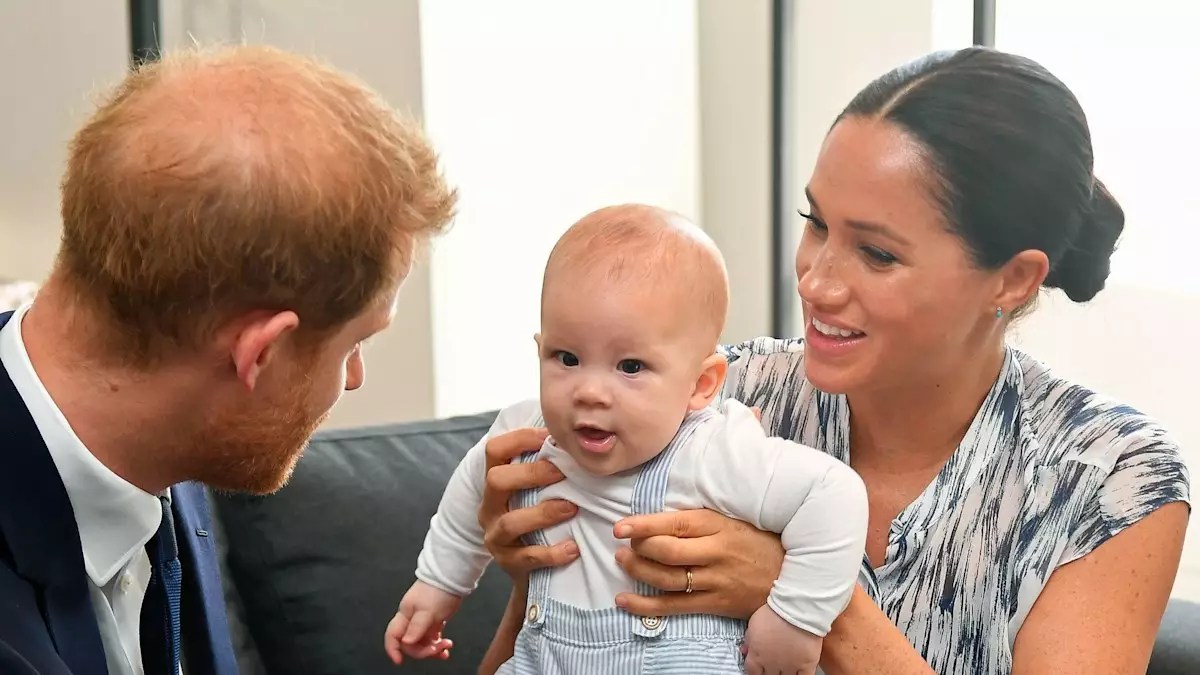The milestone of a child’s first spoken words is universally celebrated. In the realm of British royalty, these moments often serve as charming tidbits, revealing the more relatable facets of figures who are otherwise shrouded in a veil of grandeur. Prince Harry and Prince William, both devoted fathers, have occasionally shared delightful snippets from their family lives, specifically regarding the first words of their children. These anecdotes not only shine a light on their parenting, but they also demonstrate how the public engages with the royal family’s human side.
Prince Harry shared an especially memorable revelation about his son Archie’s first spoken word during an appearance on “The Late Late Show with James Corden.” While most children tend to utter simpler words like “mama” or “dada,” Harry joyfully announced that Archie’s debut word was “crocodile.” He expressed pride in Archie’s burgeoning vocabulary, noting that his son was already stringing together multiple words and even singing songs at just over a year and a half. Furthermore, Harry offered an emotional insight into the significance of family, mentioning that words like “mama,” “papa,” and “grandma” followed, with “grandma” specifically paying homage to his late mother, Princess Diana. This reflection adds layers to the royal narrative often portrayed by the media—one that underscores the importance of family ties in shaping young identities.
Princess Kate: A Taste of Royal Inspiration
Turning to the other side of the royal family, Princess Kate shared an adorable insight regarding her son Prince Louis. In a heartfelt admission made during a Christmas TV special featuring Mary Berry, the celebrated baker, Kate revealed that Louis’ first word was “Mary.” The context of this revelation is as delightful as the word itself: children, naturally curious about faces, are often intrigued by the images they encounter. Given that Mary Berry has graced the covers of several cookbooks, it’s evident that childhood experiences can create profound connections to language. Through such anecdotes, Kate not only illustrates her son’s linguistic journey, but she also emphasizes the role of environment in a child’s learning and development.
Prince William shared a whimsical anecdote about his son Prince George’s first word, which he humorously suggested might be “bilby,” a marsupial native to Australia. This revelation was made during the family’s royal tour of Australia in 2014. In his speech at the Sydney Opera House, William expressed gratitude for the gifts and well-wishes the family received following George’s birth, infusing royal duty with parental pride. The mention of a bilby underscores the influence of cultural experiences on a child’s vocabulary, reflecting the dynamic interplay between upbringing and the surroundings that shape a child’s early speech.
Continuing the theme of charming first words, David Armstrong-Jones, the son of Princess Margaret, reportedly said “chandelier” as one of his first utterances. This fascinating detail emerged through broadcaster Gyles Brandreth, who explained that the word was linked to the terminology used by his nanny, who pointed to a mobile above David’s cot. This anecdote sheds light on the role that caregivers play in child development, demonstrating how even simple interactions can lead to memorable learning moments.
The whimsical and often humorous accounts of first words from the young royals not only captivate audiences but also provide a rare glimpse into the personal lives of prominent figures. These narratives reveal the affection and pride that accompany these small yet significant milestones. They paint a picture of parenthood that transcends royal protocol—a reminder that every child’s journey is unique, shaped by love and the experiences that surround them. Through these anecdotes, the royal family becomes indelibly human, inviting the public to partake in those precious everyday moments that define childhood.







Leave a Reply